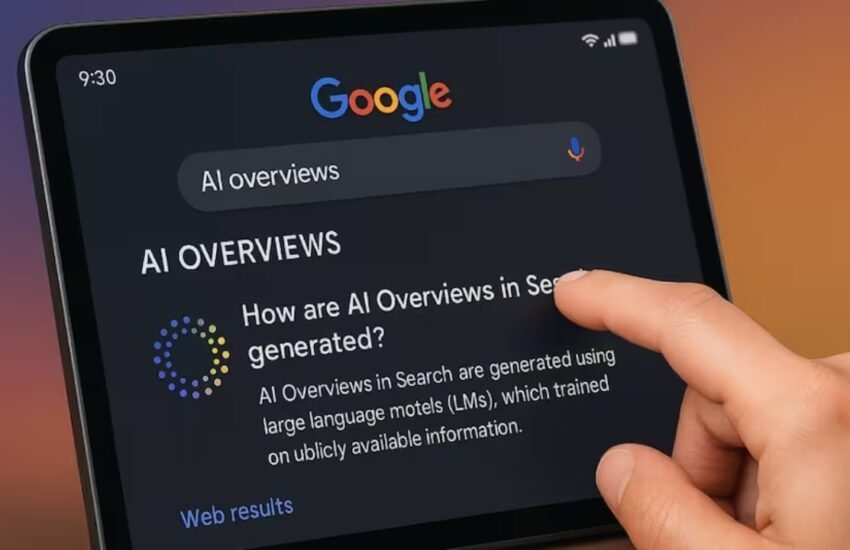Pew Research has brought to light some concerning facts about Google’s AI-powered summaries. In a study tracking user behavior, Pew Research shows that AI summaries provided by Google are depriving the web ecosystem, with referral traffic taking a significant hit. As publishers and SEOs have repeatedly warned, these AI summaries are stealing potential traffic from websites, impacting not only traffic but also the visibility of content. So, what does this mean for the future of online content consumption, and why should we be paying attention to this issue? Let’s dive deeper into the findings of this study to understand how AI summaries are changing the digital landscape.
The Decline in Web Traffic and Publisher Referrals
Pew Research’s findings clearly indicate a serious problem with how AI summaries are affecting web traffic. According to their study, users are much less likely to click on links when an AI summary is present in Google search results. The study found that only 8 percent of users clicked through to a website after encountering an AI summary, compared to 15 percent who clicked through after seeing a traditional search result. The decline in user engagement is alarming, with only 1 percent of users clicking links within AI summaries, highlighting the stark difference between AI-driven search results and traditional organic links.
How Does This Affect the Web Ecosystem?
As AI-powered search results grow in prominence, publishers and content creators are left grappling with diminishing traffic from Google. The AI summaries provide users with answers directly on the search results page, reducing the need for users to visit the actual website. For publishers and SEOs who spend considerable time and resources creating quality content, this is a massive blow to their web traffic and visibility. The study’s findings substantiate the concerns that AI search features are directly contributing to the decline of referral traffic, especially for smaller websites.
The Research Methodology: How Pew Analyzed User Behavior
Pew Research followed a comprehensive methodology to analyze user behavior and its impact on web traffic. The study tracked 68,879 Google search queries from 900 adult participants who consented to have their browsing activity monitored. Among these queries, 12,593 required an AI summary to answer the search request. The research used this data to assess how users interacted with AI summaries compared to traditional search results.
Key Findings from the Pew Research Study
The study confirms what many in the publishing and SEO industries have feared: AI summaries are diverting user engagement away from websites. Some key findings include:
- 26 percent of users who encountered a search result with an AI summary abandoned their session entirely, compared to just 16 percent for traditional search results.
- Only 1 percent of users who saw an AI summary clicked on the links provided within the summary.
- 8 percent of users clicked on a traditional link when it appeared alongside an AI summary, while 15 percent clicked on links from traditional search results alone.
These findings illustrate how AI summaries are significantly lowering the number of clicks that websites receive from Google search results.
Pew Research and the Rise of Major Platforms in Google Search
In addition to the decrease in referral traffic, Pew Research also highlighted the dominance of certain platforms in Google’s search results, particularly Wikipedia, Reddit, and YouTube. The study showed that these platforms were frequently referenced both in AI summaries and regular search results. Together, they accounted for 15 percent of the sources referenced in AI summaries and 17 percent in traditional search results.
Why Is This Important?
The prominence of sites like Reddit, Wikipedia, and YouTube reflects the growing trend of these platforms dominating the search results, especially within AI summaries. It’s clear that while Google’s AI may be summarizing a variety of content, it heavily relies on established, large-scale platforms for reference. As a result, smaller websites that rely on organic search traffic are seeing their visibility eroded in favor of these major players.
Google’s own responses to these concerns, especially from CEO Sundar Pichai, have been dismissive of the damage AI summaries are causing. Pichai has suggested that the internet ecosystem is thriving with more content being produced than ever before. However, Pew’s findings suggest otherwise—AI summaries might be depriving the web ecosystem by curbing user engagement and diminishing the traffic directed to websites.
How AI Search Is Changing User Behavior
Pew Research also uncovered how AI search is reshaping user behavior. Their study revealed that AI summaries are causing many users to abandon their browsing sessions altogether or navigate away from Google without clicking any links. Two-thirds of all searches in the study involved users leaving Google or continuing their searches without clicking any links in the search results.
AI Summaries Are Disrupting the Browsing Experience
The disruption is most apparent when users see an AI summary at the top of the search results. These summaries often provide the answer to the query right on the search page, eliminating the need to visit a website. As a result, users are less likely to engage with the broader web, preferring to stay within the Google ecosystem. This is a stark contrast to traditional search results, where users were more likely to click through and explore the content further.
The Impact on Publishers and Content Creators
The findings from Pew Research have major implications for publishers and content creators. As the AI-powered search results continue to gain prominence, publishers who rely on referral traffic from Google are seeing significant drops in website visits. This directly impacts their revenue, as many publishers depend on ad revenue generated through web traffic.
Why Publishers Are Concerned
Publishers have long voiced concerns about Google’s growing dominance over search results, and the latest research confirms their fears. Google’s AI-powered search results might be delivering more content to users, but it’s content that comes at the expense of those creating the content. By prioritizing AI summaries, Google has inadvertently robbed smaller publishers of their hard-earned traffic.
The issue isn’t just about AI summaries; it’s also about the growing dominance of platforms like Wikipedia, Reddit, and YouTube. With these platforms receiving the majority of mentions in AI summaries, it’s clear that the future of web search may be increasingly shaped by a few giant platforms, rather than a diverse web ecosystem.
Conclusion: The Future of Web Traffic and SEO
The findings from Pew Research raise critical questions about the future of web traffic, SEO, and online content consumption. AI search summaries are undeniably changing the way users interact with search results, and not for the better. Publishers and SEOs are being forced to adapt to a landscape where their content may not receive the visibility it once did.
As Google continues to evolve its AI search features, it’s important for both content creators and users to keep a close eye on these developments. If AI summaries continue to dominate search results, we could see further declines in referral traffic, with major platforms continuing to consolidate their hold on the web. Ultimately, the web ecosystem may be facing a fundamental shift, one that will require both publishers and search engines to rethink the way we engage with online content.
you may also like
WP Engine’s AI Toolkit: With Boost Your WordPress



